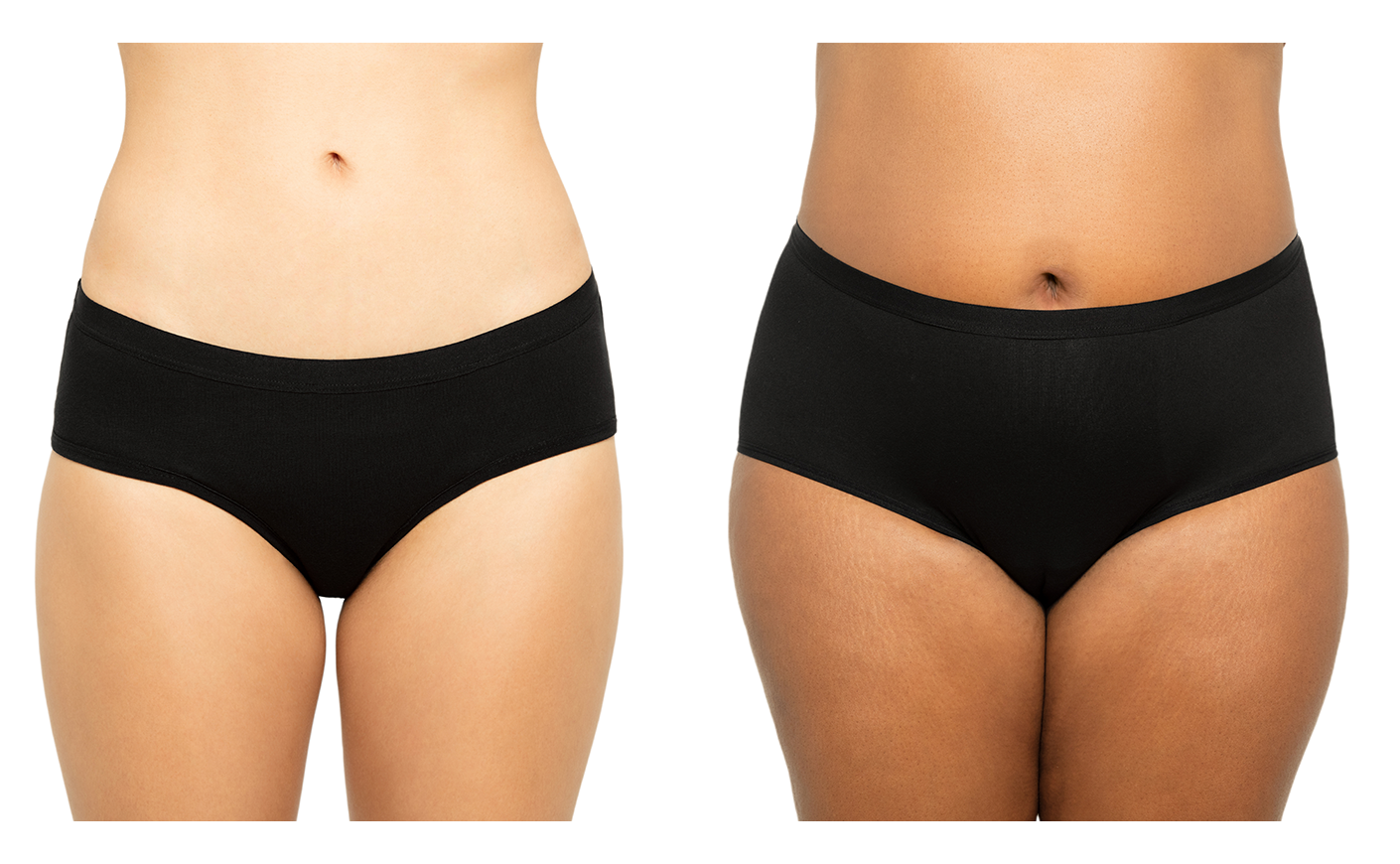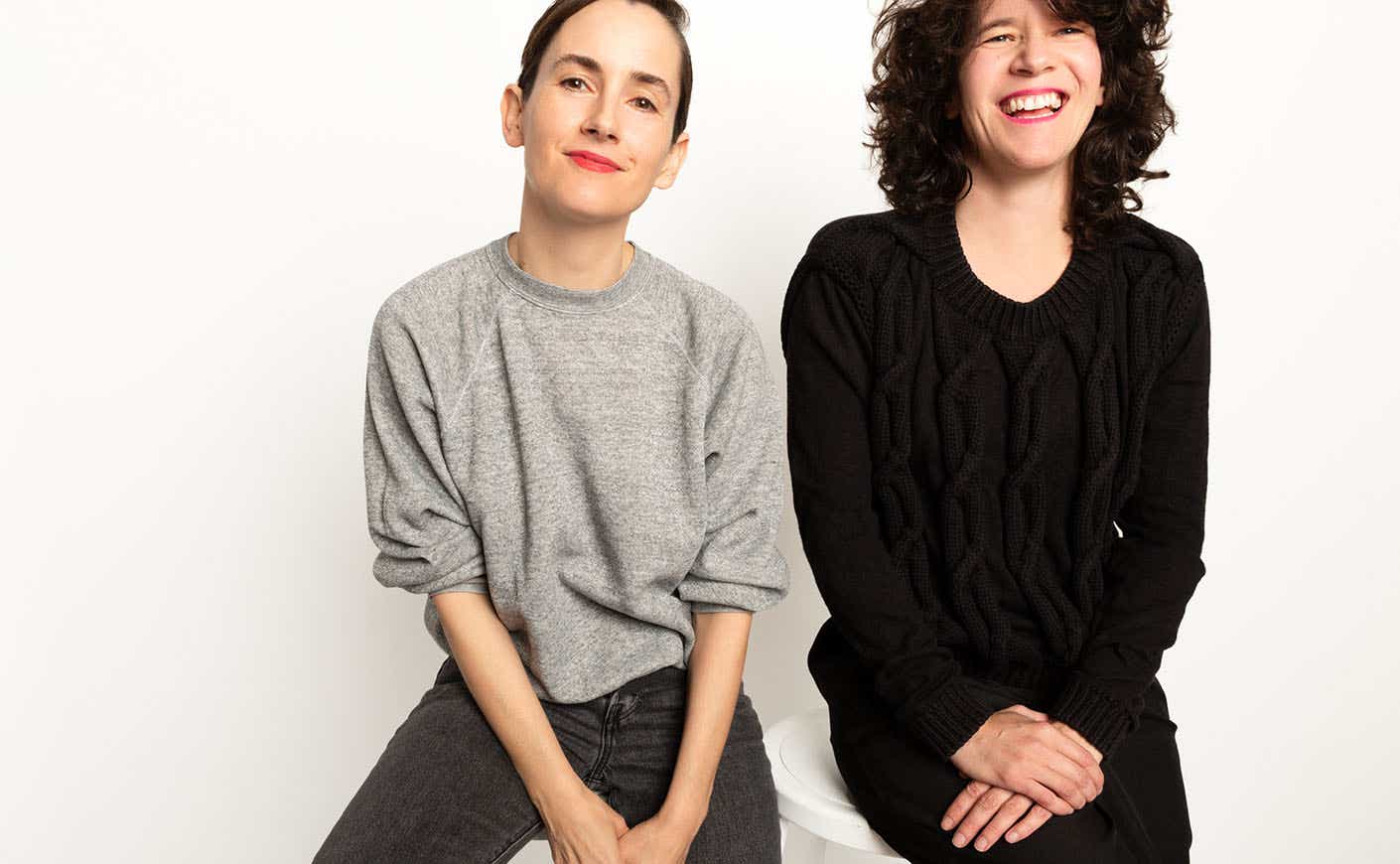The female founder and celebrity stylist on starting a business and why people should celebrate their period.
In the U.S. alone, 19 billion tons of pads and tampons end up in landfills every single year (that’s BILLION with a B). Enter The Period Company, a reusable underwear solution that is affordable, practical, and, as co-founder and Hollywood stylist Karla Welch describes it, “just your comfy period underwear.”
Karla teamed up with marketing guru Sasha Markova to launch The Period Company, and together, they’re on a mission to create a sustainable alternative to pads and tampons while also changing the conversation around periods. “We believe that if people viewed their period as a superpower, it would be a different world,” Karla told us. We spoke to Karla about how being the mother of a non-binary child helped shape her business model, and the one piece of advice she wishes she could tell her younger self.
Want to try a pair of The Period Company’s signature underwear? Enter for a chance to win a pack here.
Katie Couric Media: What is The Period Company?
Karla Welch: We make underwear that you have your period in. We’re also really good for incontinence issues. So we’re kind of just here for your life. We’re your comfy period underwear.
What inspired the idea?
My partner Sasha Markova and I started The Period Company because we realized that the amount of plastic and carbon that’s created from conventional period products is brutal. In the U.S. alone, 19 billion tons of pads and tampons end up in landfills every single year. And it’s a double whammy because that little sticker on the bottom of the pad actually produces more carbon than the pad itself. We realized that we could have a huge impact environmentally by making reusable period underwear accessible to everyone — which is why they only cost $12 a pair.
The other part of the story is my child, who is non-binary, got their period really early. It was a disaster, because they were just beginning to understand their non-binary identity, so there was a lot of trauma around their period. I discovered period underwear, but I didn’t think they were good enough. They were too expensive and they didn’t do the job. I believed that if you were going to try to replace a pad or a tampon you had to make a product that is usable — it’s not just a back-up option.

Period underwear is becoming more and more common. What makes The Period Company different?
For the record, we love everyone out there making period underwear! We just wanted to be a part of the conversation about having your period in a sustainable way. We wanted to bring an affordable option to the table because that’s how we can really impact the environment.
I also think our ethos is different. We call ourselves a community, with the goal of changing the way we talk about periods — we’re not sexualizing it, we’re not bashing it. From the get-go, we wanted to be inclusionary to everyone. We go up to size 6X, which no other brand does at the same price, and we have boxers for non-binary and trans people who period.
How has the way we talk about our periods changed in the last twenty years?
I’m 46 years old and my mom never even gave me “the period conversation.” I think about when my kid got their period, I was like, “Oh my God! I’m failing at this.” I had to examine my own experience and ask myself, “Why don’t know how to have a good conversation about what this is?”
I talk about periods all the time now, and I never thought I’d be that person. It’s becoming so normal, but there’s so much misogyny that we have internalized. We had one woman write us a letter that said what we were doing is disgusting. We decided to write her back and say, “Ok, why do you think this is disgusting?” I think if you force people to examine their biases, it’s a great learning tool.
The “Why?” is really because we live in a society that’s literally weaponized periods against women to make us feel shame. With The Period Company, we think it’s the biggest mountain we could be climbing right now. We think if people viewed their period as a superpower, it would be a different world. Imagine if we taught every boy on the planet that a period was a superpower, there’d be a really different feeling towards people who get a period.
The Period Company is also working with organizations that are trying to create menstrual equity for people all over the world. Can you tell us about the work you’re doing in that space?
This is a big part of our business model. We sell at-cost period underwear to anybody who wants to help a community. It’s not a financial boon for us, but it fits within our mission.
We’re sending 3,000 pairs of underwear to a school in Africa. That means each girl there is going to get five pairs. This is going to change their lives, because pads and tampons just continue the cycle of period poverty. You’re relying on someone coming through each month — whether it’s donations, or people who are hand out tampons and pads. With our period underwear, this is a solution for three to five years. It’s amazing.
A huge barrier to education — and it’s not just in developing nations, it’s in America — is that kids stay home when they get their period. Kids drop out of sports when they get their period. It’s the number one household expense that gets passed on when there’s not enough money. There are so many great things happening globally with free period products, we just think the free products need to be sustainable.
Who is a female entrepreneur that inspires you?
Jen Atkin, founder of OUAI haircare. Jen and I grew up together in the glam industry. We would sit together years ago and talk about what we wanted to do, and here we are actually doing it — in very different ways.
Who inspired you to do what you’re doing today?
My kid, Clem, and really any person who periods.
What’s a piece of advice you would tell your younger self?
Build a community. I think for so many people — women especially — we shy away from a community and think we have to do everything ourselves. But I have learned that community is everything. Your inspiration, your heroes, can sometimes be right beside you.









